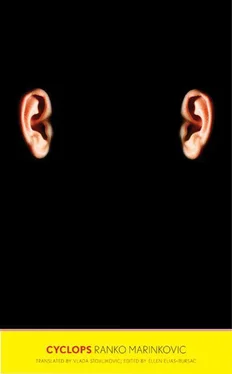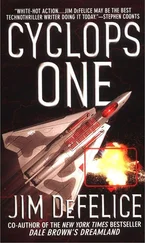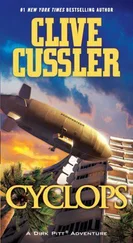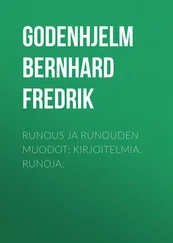The poor captain heaves a sigh from the bottom of his heart and utters, without knowing why, an obvious piece of drivel:
“Damn it all, if only we’d remembered to bring a compass!”
“Damn it all, yes!” comes an ironic voice from the dark. “But given our navigational expertise I’m sure we’ll be able to plot our course in a cauldron full of water.”
It is the first mate, a pale young man with a white, henlike complexion, handsome in a rather effeminate way, delicate and sensitive like a pampered only daughter. The long and boring voyages in the Merchant Marines have pushed his melancholy nature to a gloomy spleen and a certain state of bitter depression and sarcasm. Feeling alone in the world, he finds Nirvana quite early on in a Hong Kong opium den.
Deprived now of his drug, he is naturally irritable. He has gone a whole day without a whiff of his bliss, knows that he will never have any again, and the knowledge is driving him desperate. He keeps smacking his head and mumbling idiotic gibberish.
The red-headed Asclepius knows what this is like and tries to relieve his transient pain by offering him the imminent prospect of eternal peace in genuine and, so to speak, natural nothingness. But nothing, not even the cannibal void, can comfort the pale first mate. All he announces is his simple revulsion with such a death. He can well elaborate in his mind Hamlet’s thought about a king passing through the intestines of a beggar and is quite indifferent when imagining himself making his last journey in a state of mastication. He is just revolted, that is all. But this, the idea of “living in infernal reality” and never again, never again having a sniff, even if the “never again” lasts only three days — this he finds unbearable.
“How about betel leaves?” the doctor remembers. “You chew them, they’re quite good … in a pinch.”
“Betel grows in India,” the first mate sighs yearningly and cries out in pain like a patient in the first night after his operation.
“It must grow here, too,” the doctor comforted him, never saying never. “Betel is a species of tropical pepper and we are in the tropics, glory be to Buddha and Vishnu.”
“Well, let me have some, then!” screams the first mate as though he is going to throttle someone if he is not given betel leaves that instant. “You’ll get them tomorrow,” said the doctor with the assurance of Christ promising the right-handed thief paradise on the morrow.
Paradise on the morrow. And something akin to joy welled inside Melkior the traveler, he felt the foretaste of an emotion. But the emotion itself was not forthcoming. First there was the necessary question: where did it come from all of a sudden, this affectation of the heart, this fantastic light shed on his nerves, this ever so soft caress of The Future? As if he had downed a shot of the hard stuff à la Maestro … at the Give’nTake … In the fog of his fear, in spite of everything, Beauty had smiled — at Ugo … It was at Ugo she smiled!
He swallowed Ugo with a dry mouth, forcibly, without faith. Without empathy, with envy. Titania had fallen in love with the ass. She was going to fall in love with Ugo. Titania will abandon Freddie for Ugo. She’ll be with us, with the masters. He had entered into partnership with “the boys.” The boys were going to have a queen. He would play Pyramus and Ugo, the lion. Maestro would be the wall and Chicory Hasdrubalson the moon. A midsummer night’s dream …
At the border of the dream he was stopped short by a rough voice—
“Halt!” It was the changing of the guard downstairs, in front of the 35th Regiment barracks. In the light of a gas lamp, the two sentries were touching heads and whispering mysterious words like ants. The new sentry now had the watch. Crunch! went his boots. The boredom had begun …
Somebody was going upstairs, making for the third floor. But there were four feet on the staircase. Melkior had a closer listen. Four. Two were treading softly, trying to be soundless, and the other two were pointedly loud, at home there, seeking to cover for the two stealthy ones. The feet came to a stop outside Melkior’s door. They knocked. The door was not locked. Without waiting for an answer, there appeared a black goatee with a grin, apologizing for the disturbance. Into the room stepped Mr. Adam, or ATMAN, a palmist of renown. He was wearing a black housecoat with a white scarf around his neck and a golden spider under his chin. He lived in a rented room directly below Melkior’s. Melkior came up with his stage name, ATMAN, two or three years previously when Mr. Adam moved in as a totally unknown beginner who, as a sideline, transferred the photographic images of the dead onto porcelain. He now had women clients from all over town, including names from posh society. In the house he was respected more than the Court of Appeals judge who lived on the third floor; he was even a little feared. Passing his door they spoke in whispers and walked on tiptoe.
“Good evening, Mr. Melkior. Sorry to barge in like this. I heard you pacing above my head and I said to myself, Why do we not go upstairs and keep him company? That’s my little habit, speaking to myself in the plural. After all, when you’re talking to yourself, there are in fact two of you, are there not?”
“Yes, well, there were also four feet on the stairs,” Melkior said rather rudely. He was finding this presence disturbing.
“Don’t tell me you meant that as a slight,” the palmist gave an ingratiating smile. “You didn’t mean to describe me as an animal, a quadruped, did you?”
“No. I meant it sounded like two people walking up …”
“Double impressions of that kind are not unusual at night. It’s an effect of nocturnal fantasy. The night multiplies things, particularly acoustical phenomena. So does solitude. You are alone a great deal of the time. Thinking about things. Thinking up things.”
“I expect you are far more alone than I.”
“Not at all!” protested Mr. Adam vigorously and sat down, feeling quite at home, settling in for a lengthy conversation. “I am never alone. Why do I talk to myself in plural? There are two of us: me and ‘myself.’ Like in a play. You don’t think in such dramatic terms. You are independent in your thinking. Personal. You simply won’t let people disturb you. Whereas they do disturb me. They keep badgering me with their traps and catches and all kinds of silly questions: ‘what if’ and ‘suppose’ and so on and so forth. Like, for instance, what if people could carry their homes on their backs, like snails? Silly stuff like that, you wouldn’t believe it. Telling me jokes, mostly about dogs. For the barking, disturbance of the peace. That’s what my life is like. Teasing.”
And Mr. Adam kept smiling, stroking his pointed goatee with the tips of his white fingers.
“We talk about strange feelings as well, the two of us. We stretch, in solitude, and something goes click in the neck, right below the skull. And a door opens to admit curious thoughts. They enter the head, via the spine, from all over the body. Everything we collected during the day by touching, listening, watching. This includes garbage, actual garbage, and all kinds of filth. We touch this and that with our attention, as with a dog’s nose. Everything sticks to us, all manner of observations. We sniff with the finger, the ear, the eye. We watch each other and we think, Nothing’s out of the ordinary. But at night, when there’s this click inside the head — presto, everything seems strange. That’s when the teasing starts.”
“Was there something you wished to speak to me about?” Melkior asked impatiently. “Something specific?”
“Specific? No, not really. Nothing specific. The indéfinissable— is that the right word? — is what excites me much more passionately. God, the amount of muck I’ve filtered through to get at a grain, a single grain of truth! After all, it’s my job: to filter, to sift. A beautiful lady comes to me to have her future told. On what basis? On the basis of the silt she pours over me? She has me drenched with her lies, there’s muck trickling from her pretty mouth, a lot of charming drivel. So go ahead, fish for her ‘future’ in that swill! No way, Madam! I go on screening and straining the stuff if it’s an engaging case, I might take a whole afternoon running the muck through the filter. I don’t care if others are kept waiting, I decant and precipitate this one over and over again … until the lady is frightened. They’re all afraid. That’s how I get them. It’s not the future they fear, oh no! We are afraid of the future, you and I, people of intelligence. Your fear, of course, is far greater, you being the more intelligent. But they, the society ladies, are afraid of the grain of truth in the silt, the pearl in their little shells, heh, heh, that has come about through them leading a certain kind of life. And when I reach for the grain, they quake. They will even swoon if the grain of truth is big enough, heh, heh … Do you imagine this repels them? No, sir, it draws them. They are intoxicated by fear, they become aroused — literally, that is to say sexually, aroused. We flee, we who know why the cock crows. We don’t want to know. Our past is clean. Our present is … hah, that’s the question; what about our present? I almost rushed into saying something imprudent, and the fact is that our present, I’m afraid, is none too clear. Fear of the future, that’s what disturbs it. In consequence, we don’t want to peer into it. We’re clever, we know we’d better not, do we not? We’d rather live like this, in uncertainty …”
Читать дальше












